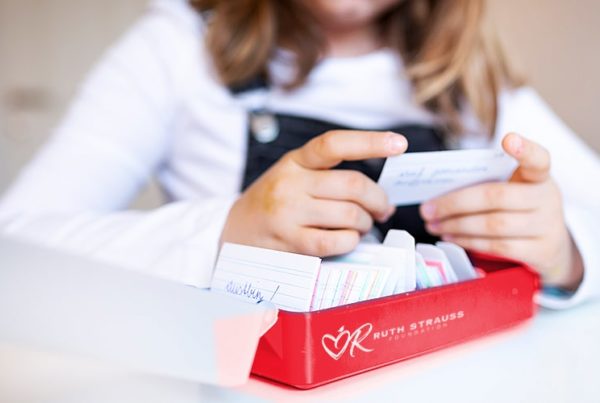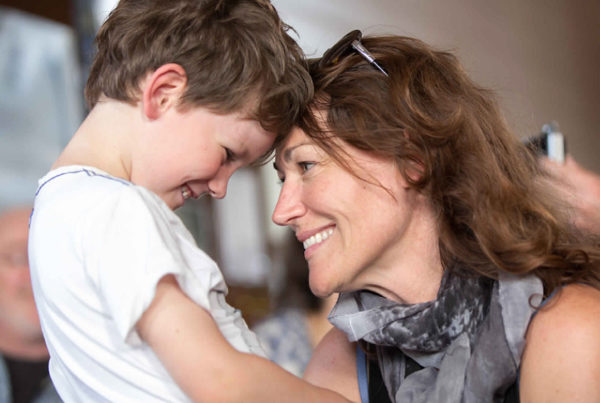Thanks for Your Questions
“"Talking about death and dying, and the grief we feel when we know someone we care about is going to die, is incredibly hard. For a parent who does not have long to live, it's important to agree with your partner about how to be honest and open with your children. Breaking the news gently, gradually introducing not getting better from cancer and using real words like dying and death, will allow a child to ask questions and share concerns. This in turn will give parents time to re-assure and comfort their children which is so badly needed at this time. When children are told the truth they are more able to trust and manage such a sad time in their lives."”
Jenni ThomasFamily Support Advisor
We hope that the below questions & answers offer some help and guidance for those of you having to have these very difficult conversations with your children.
Please do visit our Support page for further support resources.
Q
Hello. I am dad of 3. We are sadly soon to lose my wife, and kids wonderful mum, to a brain tumour. We have been very honest with children via numerous conversations over the last year. I have listened to Jenni podcasts and have a number of books. One of my children is talking to a counsellor, another one is having play therapy at school. Where I have a gap is my son. He is angry and keeps very quiet with his thoughts and anger. He is very sporty and a mad footballer. I would love to find him some kind of sport related support akin to my youngest’s play therapy. Appreciate any ideas / support you can think of. Thank you, Andy
A
You and your wife have been very thoughtful in how you have approached this really tough time in your family. It’s not unusual in a family for one of the children to exhibit the angry feeling, another the sadness and so on. It’s not all they feel but maybe that’s the only way they can show what’s happening for them. Try as the parent not to say one child is angry, although it may well be the case. It’s often that one child gets called the angry one, and then does the anger for the whole family. For your son it may well be the only way he can show how upset he is, whereas another sibling could be clingy and tearful, another withdrawn and switched off or another openly expressing their fear and sadness. We as adults struggle with knowing and expressing how we feel; children are no different.
My suggested guidance is to continue to share with the children, tell them how their feelings can change from being sad too angry. It’s natural because of this dreadful illness and how it’s hard for them all. Although it’s no ones fault it’s ok to be cross and upset about it .
Children learn about grief by watching the adults they are closest too and by being reassured that all feelings are neither good or bad – they are just feelings. What they DO with those feelings can be helpful or unhelpful. For example, if you are sad and would like a cuddle, it’s good to say that’s what you want, or you could do something kind which will make you feel better. But it’s not ok to say or do hurtful things when you are angry – that is when it’s better to encourage all the children to go out into nature and walk or run off the upset frustration.
Sounds like this is very much what you have recognised in your son. If you can go outside and kick a ball very hard, or train together to do a run for a charity, it’s a wonderful way of helping difficult-to-manage emotions. As his Dad you are so right to be finding ways for him and the girls to exercise in these tough times, it is invaluable in helping release angry pent up emotions.
Q
How do we prepare our teenagers for the death of their dad? He has lung cancer, there is palliative care only…. he is on the last form of treatment as nothing is working…. Hard Times 🙁
A
Thank you for sharing your question with us during this very difficult time. Preparing teenagers for the death of a parent is particularly difficult and very much depends on their ages and how close they are in their everyday life with their step parent. Teenage years can be so changeable and it varies hugely how they want to be communicated with. Some want to be included, others will shut off from the distress. It’s helpful to give them a choice as to how much they want to be included. There is no right way – as being quiet does not mean not caring. Offer each child a chance of giving their step dad a card or drawing to express how they feel. This is invaluable later when young people can feel guilty they didn’t say or do more – like adults.
We suggest for you to reach out to Winston’s Wish and Cruse. Both charities offer excellent support on how to manage grief in teenagers. Here are some useful links: Winston’s Wish and Cruse
Q
I have a close friend who has been diagnosed with a terminal cancer… When do you recommend she starts to talk to her children about her diagnosis and what’s ahead? – Helena
A
Thank you so much for reaching out to us with your question. Helping friends during these difficult times is so important.
Each situation is so very different so it’s impossible to say when it’s the right time. However, it is important to gradually talk to the children, so they can understand and manage the information they receive gradually. A good question to start with us “Have you noticed anything different about mummy / daddy not being well?
And remember, it is ok for the parent to show they are sad, so that the children know and feel the they too can open up about their own feelings. Best not to be so upset that it distresses them. Hope your friend can do that with you or another adult.
There are some other helpful tips on our Support page we suggest for you to share with your friend too!



